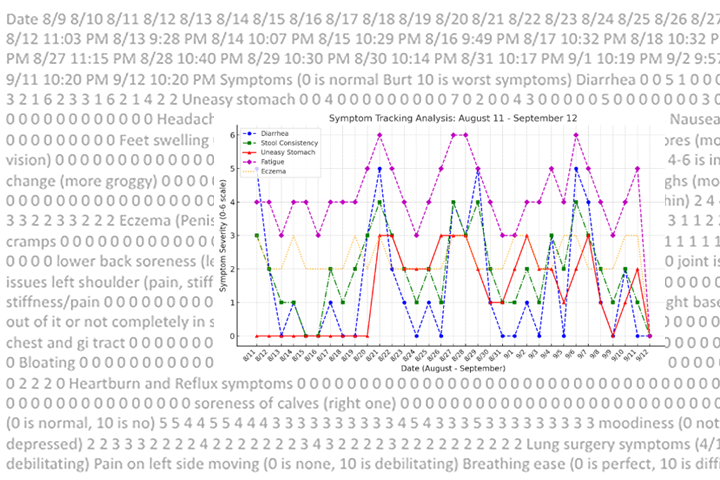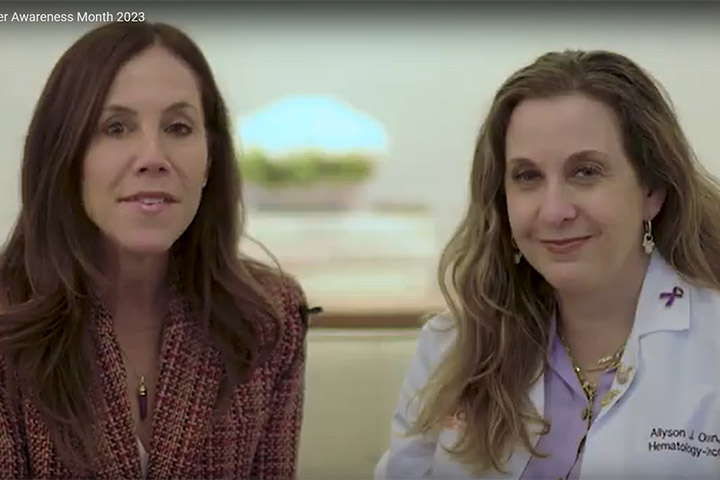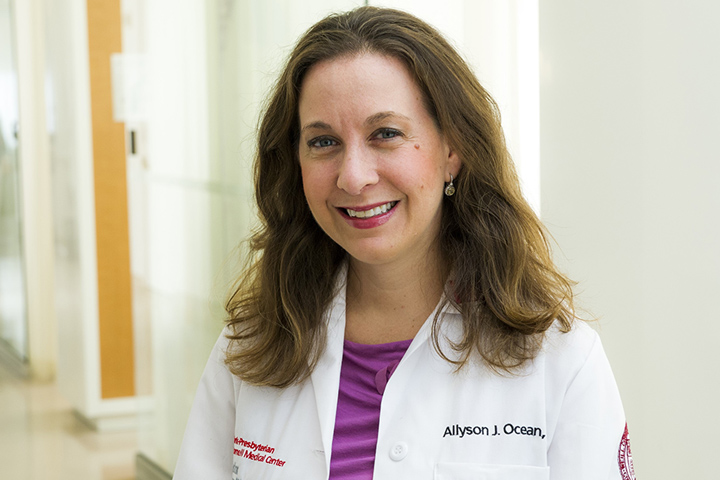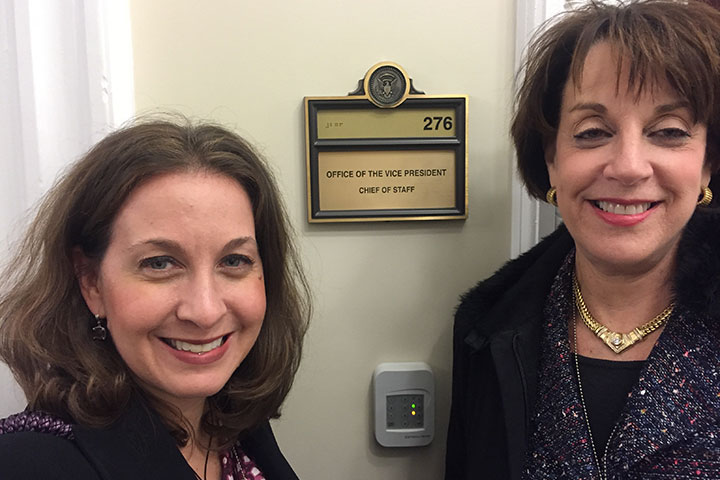Pancreatic Cancer Treatment During the COVID-19 Pandemic

Alissa Eckert, MS; Dan Higgins, MAM; CDC
We are living in the age of COVID-19, the novel coronavirus that has changed life in ways that were seemingly unfathomable just a few short months ago.
Many of us are currently trying to become accustomed to working from home. Others, like medical professionals and first responders, are trying to keep us safe, while balancing their needs and that of their families. A trip to the grocery store (where there is plenty of food available) has become an exercise in patience—and sometimes fear of becoming exposed to COVID-19.
If you are reading the Let’s Win website, pancreatic cancer has affected you in some manner. Maybe you are currently going through treatment or have finished treatment and are waiting for results. Maybe you, or someone your love, was recently diagnosed with the disease. Maybe you are a caregiver to someone with pancreatic cancer. There is no one-size-fits-all approach in this brave new world on how best to protect against COVID-19, especially if you are a cancer patient or if you are caring for someone with cancer.
Each month Let’s Win hosts PancChat, an online Twitter chat, where patients learn about clinical trials and new treatments from a team of pancreatic cancer experts. With COVID-19 dominating everyone’s thoughts, our most recent PancChat focused on what cancer care centers are doing in terms of trying to protect cancer patients while simultaneously trying to provide optimal care.
No one knows all the answers. But do know this: all health professionals, along with local, state, and national experts, are doing their utmost to get ahead of the pandemic spread and “flatten the curve” of COVID-19. Remember, social distancing—a term we have all become too familiar with—does not mean social isolation. Keep in touch with those you love via phone, text, or video chats. And know that Let’s Win is here for you.
Answering Important Questions about COVID-19 and Treatment
Here’s what noted physician-scientists on the frontlines of pancreatic cancer research and treatment had to say about pancreatic cancer and COVID-19.
One question on everyone’s mind is whether patients who are on active treatment, such as chemotherapy, or who are about to start chemotherapy, should delay treatment? There is no one right or wrong answer, says gastrointestinal oncologist Dr. Alok Khorana of the Cleveland Clinic (Ohio). Whether to initiate chemotherapy or hold, or suspend chemotherapy, is dependent on the individual’s case, adds Dr. Shaalan Beg, a pancreatic cancer expert at UT Southwestern Medical Center, Dallas, Texas. “Ask yourself how effective is the chemotherapy and what is the risk of treatment? And is this patient better off at home, as opposed to the doctor’s office.”
How does COVID-19 impact pancreatic cancer treatment? All doctors, of course, discuss the potential risks and benefits of all treatments, but COVID-19 has added a new twist to the discussion. Dr. Gagan Brar, a gastrointestinal oncologist with Weill Cornell Medicine (New York), leans toward holding one cycle of palliative chemotherapy (as of March 15) while discussing with each patient the risks and benefits. However, she adds, she is looking at adjuvant chemotherapy on a more case-by-case situation.
Physician-scientists are learning more every day about COVID-19 and its effects and spread in the general population. What they have known, well before COVID-19 reared its head, is that cancer patients, because of the nature of the disease and treatments, are at more risk of infection. “It is becoming clearer, though there is still a lot to learn and to understand, that cancer patients are at much greater risk of complications and even death from COVID-19,” says Dr. Michael Pishvaian, a gastrointestinal oncologist at Johns Hopkins, Baltimore, Maryland. “Unfortunately, that just makes the decision whether or not to treat that much harder.”
What specific actions are being taken to protect patients during visits for a check-up or who are scheduled for a check-up? One way COVID-19 is believed to be transmitted is via asymptomatic carriers (people who have COVID-19 but are not exhibiting any symptoms). Doctors have to balance having immune-compromised patients in public waiting rooms and offices. Many doctors agree that canceling routine visits is the way to reduce risk to everyone. “Minimizing the number of visits and the number of locations that a patient must be in” is one strategy, Pishvaian says. “We have been uncoupling telemedicine/phone ‘visit’ days with the doctor from the actual day of chemo,” which means that patients arrive and go straight into the infusion area.
It should be noted that many patients, even prior to COVID-19, preferred not to have in-person visits, says Beg. It is also vitally important that all cancer centers have a plan in place. “No one knows the right or perfect plan, but decisions can’t be made on the fly,” explains Pishvaian, adding that many cancer centers have developed “command centers” to disseminate a uniform plan. Doctors are also changing the way they meet. For example, instead of meeting in person for tumor boards (a review among experts for the best course of treatment for a patient), they are going virtual, which has worked out well for all involved.
What advice is there for patients who are sick, say with side effects of treatment or another illness? “I think before rushing to the emergency room or doctor’s office, find out if your cancer center already has set up video or tele-visit,” says Dr. Pashtoon Kasi, a hematologist and oncologist at the University of Iowa Health Care (Iowa City), but that depends on the situation. “If serious, obviously (go to) the ER.”
Are there any drugs to treat COVID-19? Dr. Allyson Ocean of Let’s Win and Weill Cornell wanted some input on drug treatment. There has been press coverage about doctors using hydroxychloroquine/chloroquine as chemoprevention for coronavirus. The combination was given to almost everyone during the China outbreak. Ocean notes that Dr. Anthony Fauci (Director of the National Institute of Allergy and Infectious Diseases) has advised that it’s too early to make a formal recommendation for widespread use of these drugs, but that clinical trials are being conducted and expedited.
Currently, “many hospitals are recommending a mix of off-label Kaletra plus hydroxychloroquine in patients with significant COVID-19 symptoms,” says Dr. Anirban Maitra, Scientific Director of the Sheikh Ahmed Bin Zayed Center for Pancreatic Cancer Research at MD Anderson Cancer Center, Houston, Texas. (Kaletra is an antiretroviral drug used to treat HIV infections.) In Seattle, as well as other locations, there are trials of an antiviral drug called remdesivir (made by Gilead). And vaccine research is ongoing.
Why Are Cancer Patients at Greater Risk
Older adults and those with serious chronic medical conditions are more at risk from COVID-19, according to Mayo Clinic’s COVID-19: What Patients With Cancer Should Know.
Cancer patients may be at a higher risk of infection and more severe symptoms, though temporarily, due to weakened immune systems from cancer treatment, explains Dr. Rafael Fonseca, a hematologist and interim director of the Mayo Clinic Cancer Center. However, the information is somewhat limited currently. “From what we know, infection with COVID-19 seems to be more difficult, more aggressive, and with worse outcomes in people who are, in general, unwell and are of advancing age,” says Fonseca. “And what we’re seeing is this is predominantly in older males that we have seen the effect.”
Because cancer encompasses more than 100 diseases, there are different implications for different patients, though those with advanced disease or on treatment that are immunosuppressive, “that would bring the immune system down more than average and then, particularly in those groups of patients, we might think of a different way to approach their care,” he adds.
Some treatments might actually affect how a person fights off an infection. For example, if white cells are diminished, myelosuppression occurs. Myelosuppression brings down cells called neutrophils, which play a role in bacterial infections. Other treatments may affect the immune system and affect lymphocytes. “So maybe that’s more important for viruses,” says Fonseca, adding that this is “all speculative because we really don’t have information at this point.”
He encourages patients with cancer to have ongoing conversations with their oncologists for information on their specific cancer and their treatment.
There is a wealth of information available on COVID-19. Some of that information is a moving target, with information seemingly changing by the hour. Unfortunately, some of that information is based on rumor. The single most important thing you can do is to get in touch with your healthcare team to find out what you should do, based on your particular circumstances. Chances are very good that your hospital’s website also has important information that can help guide you through this difficult time.
For More Information
Below is just a sampling of some of the excellent information being put out by some of the nation’s top medical centers. They include:
- Cleveland Clinic
- Fred Hutchinson Cancer Research Center
- Johns Hopkins Medicine
- Memorial Sloan Kettering Cancer Center
- New York-Presbyterian
- Seattle Cancer Care Alliance
- UT Southwestern Medical Center
And, of course, keep up-to-date with the CDC and WHO, as well as your state and local health departments for quality information.






